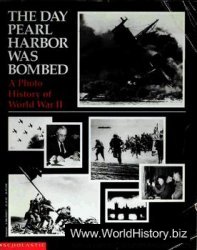Because politics take center stage in this book, it is useful to define that concept here, although more detailed treatment of political power follows in Chapter 2. Some scholars consider all of human society to be political because power is always at play and in action. However, this definition does not make it a particularly useful concept, and for this reason, I restrict my definition of politics to the political system or the government and its office holders, the use and manipulation of political power by these office holders, and the encounters with and resistance to the political system by those who do not hold political offices. I prefer to frame the discussion of ancient politics following several different perspectives, including Rice’s focus on the political system, Wolf’s search for the forces and processes behind the political structure, Wolf’s and Mann’s emphasis on struggles among factions and individuals, and Dobres and Robb’s concern for all individuals and their role in ancient politics.
Prudence Rice (2004) has recently defined the political system of a complex society as “1. its structures: a. an administrative or organizational sector, usually hierarchical, of policy - or decision-making roles, and b. a ‘political’ sector where decisions are made and competition for power takes place; and also 2. its functions: rules and sanctions that implement policy, maintain societal order, and safeguard territorial sovereignty” (5).
In contrast, Eric Wolf (1964) defines the political as “the struggle of social groups and their dynamic accommodation to one another, and, implicitly, of the emergence, distribution, and containment of power in a system” (61). He argues that if we are to understand politics, primacy must be given to “the forces generating the [political] processes” rather than to the political structure because structure “becomes a temporary accommodation to these forces, which extend their pressures from within or from without the system” (65). He also warns that political power “is not a seamless web of domination but [is] a panoply of processes of varying intensity and scope” (Wolf 1999, 61). Wolf stresses the intertwined nature of power and symbolism because “great collective social myths. . . serve to draw large strata of the population toward collective goals” (1964, 77). In a similar vein, Mann (1986) argues that if we conceive of society as “multiple overlapping and intersecting sociospatial networks of power,” the “central problems [of power] concern organization, control, logistics, communication—the capacity to organize and control people, materials, and territories, and the development of this capacity throughout history” (2-3; Mann’s italics). Thus, for Mann, power requires an infrastructure and scholars can study power through an analysis of the organization of this political infrastructure (10).
Another way to conceive of ancient politics is to begin with the individual rather than with structure or process: Politics can be conceived as the individual’s experience of political power and his or her contributions to, support for, or reaction against power. Here I take my cue from Barth’s words: “Instead of seeing political organization in the traditional anthropological manner as an ‘institution,’ based on rules and norms and defined by its function for society, I wanted to describe it as an outcome of the choices and alignments made by its participants” (Barth 2007, 3). Questions that need to be explored are the degree of individual agency (Dobres and Robb 2000): Can a person act as he or she wishes? Does he or she have choices of action? How restricted are these choices by structure and process, be it kinship, neighborhood, community, religion, wealth, status, or competition for political power? Although we may not be able to answer all these questions with archaeological evidence, they should be among our concerns about the past.
Rather than restricting our perspective on ancient politics to one of these definitions, I endeavor to present aspects of all in the following chapters, as I reconstruct ancient Maya political dynamics. Politics were as dynamic in the past as they are today. They were fragmented and constantly in flux as different individuals, institutions, groups, and communities pursued their own goals. My last caveat is that the chapters that follow are to be taken not as the final statement on ancient Maya politics but as the foundation for asking new questions. I hope nevertheless that the following chapters will illustrate that we know much about Classic Maya politics when all the threads of evidence are drawn together.




 World History
World History









